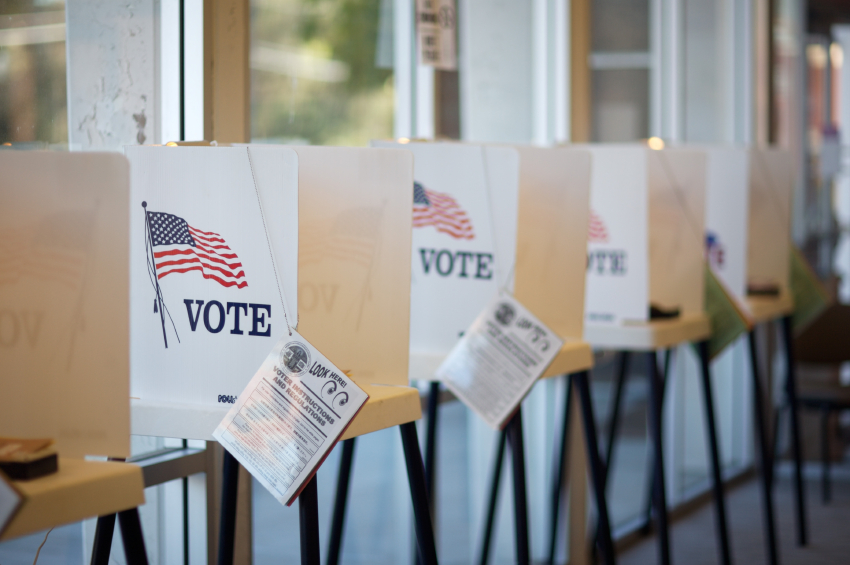Proposition 16: California voters reject proposition legalizing affirmative action

(Natural News) California voters resoundingly rejected Proposition 16, which would have repealed a 1996 ban on the use of race- and sex-based affirmative action in the state’s public sector. Around 56 percent of California voters have voted against repealing the ban.
Had the proposition passed, it would have allowed public universities to create admissions quotas limiting a person’s eligibility to enter a school based not on merit but on sex, race, color, ethnicity or national origin. It would have also allowed state and local government agencies to consider similar factors when deciding who to hire and during the awarding of government contracts.
The ballot measure was brought before California voters by the Democrat-controlled state legislature. Its goal was to repeal Proposition 209, a ballot initiative approved by voters in 1996 that effectively banned affirmative action policies in the state.
Proponents of Proposition 16 argue that it is necessary to remove the ban on affirmative action to increase the enrolment of ethnic minorities like African Americans and Hispanic Americans in the higher education system. Opponents, on the other hand, argue that this undercuts a system whose only basis for enrolment should be merit. (Related: Conservative watchdog sues California for law mandating diversity quotas in corporate boardrooms.)
Proposition 16 faced an uphill battle for approval
“[Proponents] still have not persuaded the people that it is okay to discriminate against one group of people in the interest of trying to benefit another,” said Ward Connerly, one of the people who led the campaign against Proposition 16.
“This was a classic case of the political establishment going up against the people – and the people kick their butts.” Connerly, a Black Republican, was one of the people responsible for the passage of Proposition 209.
Ward said that California voters saw Proposition 16 as an affront to the basic principles of fairness and merit. He and many opponents of the proposition also argued that this shows how the Democratic Party-controlled state legislature has strayed too far left of the electorate.
Supporters of Proposition 16 were able to raise more than $31 million for their campaign, mostly from many wealthy backers, such as Steve Ballmer, owner of the Los Angeles Clippers, and Patricia Quillin, wife of Netflix CEO Reed Hastings.
On the other hand, opponents of the proposition were only able to raise over $1.6 million for their campaign. However, what they lacked in funding they made up in grassroots support. The campaign was led by a vocal contingent of Asian-American activists and was funded mostly from small donations from the Asian American community, and from conservatives like legal activist Ed Blum.
Supporters of Proposition 16 consistently trailed in polling
Supporters of Proposition 16 spent the entire campaign monitoring polling data to see how well their message was getting across. During the summer, when the engineered rioting first erupted following the death of George Floyd – and issues of racial equity and police brutality were fresh in the minds of Californians –backers of the proposition believed they would be able to ride this wave of civil unrest to a victory in the polling booth.
Supporters of the proposition were able to make some headway. Independent polling data showed that the state’s African American community was firmly supportive of affirmative action. However, the same could not be said of the White community, who were firmly against the measure, and of the Latino community, who were split down the middle. The campaign desperately needed to get through to the state’s Latino community because they accounted for around a quarter of California’s electorate. Unfortunately, no amount of funding helped the proposition’s backers reach out to them.
They were also not able to rely on help from the Asian American community. They used to be very supportive of affirmative action. However, polls showed support for such policies declining in recent years, particularly among Chinese Americans and recent migrants who have been relying solely on merit to gain entry into some of California’s most prestigious public universities.
Supporters of the proposition were also hoping that California’s demographics and politics would help them score an easy victory. No Republican has been elected to a statewide office since Arnold Schwarzenegger won the gubernatorial race in 2006, and a majority of the state’s electorate is now non-White.
Neither demographic shifts nor current events were able to help backers of Proposition 16. They were still trailing far behind in polls as late as mid-October, which shows that many in the state are still uncomfortable with giving people a leg up based on their sex, race or ethnicity.
Read more about the policies California’s Democratic Party-led government is trying to push through that are making the state less stable at CaliforniaCollapse.news.
Sources include:



